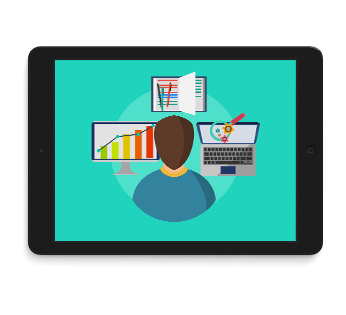BI and Analytics
Choosing Between Business Intelligence vs Business Analytics Solutions
In recent years, organizations have increasingly turned to advanced software solutions to manage workloads, maintain profitability and ensure competitiveness within their respective industries. While there are several options available, business intelligence (BI) software and business analytics (BA) programs are arguably the most widely implemented data management solutions. Business analysts and software buyers often ask what the key differences are between business intelligence vs business analytics.
Business intelligence solutions are among the most valuable data management tools available. BI solutions seek to collect and analyze current, actionable data with the purpose of providing insights into improving business operations. Meanwhile, business analytics software is primarily used to analyze historical data to predict business trends, usually with an eye toward improvement and, often, preparation for change.
Business Intelligence
In broad terms, business intelligence systems are used to maintain, optimize and streamline current operations. BI improves and maintains operational efficiency and helps companies increase organizational productivity. Business intelligence software confers many benefits, notably powerful reporting and data analysis capabilities. Using BI’s rich data visualization mechanisms, including real-time dashboards, managers can generate intuitive, readable reports that contain relevant, actionable data.
Additionally, BI tools can analyze financial and operational statistics, identify weak areas and provide ways to address these issues. The trends found through this data analysis help companies make better-informed, data-driven decisions. Most BI tools employ online analytical processing (OLAP) to perform complex, multi-dimensional analysis. In addition, BI also offers a goal management function. Managers are able to program data based on goals, which may include sales goals, productivity measures or financial objectives, on a daily basis.

Business Analytics

Like business intelligence, BA collects and analyzes data, employs predictive analytics and generates richly visualized reports in custom dashboards. The aim of these features is to help identify and address an organization’s weak points. This is where the similarities end. Business analytics software is used to explore and analyze historical and current data. It utilizes statistical analysis, data mining and quantitative analysis to identify past business trends.
It then uses that data for predictive modeling, which can predict and, in most cases, prepare for future business climates. One of the most powerful aspects of BA is ad-hoc reporting, which allows companies to perform ad-hoc analysis of their data in real-time and, therefore, make quicker business decisions. In effect, business analytics uses predictive analysis to solve problems before they’ve occurred.
Popular business analytics solutions include; SAP Business Analytics Suite, Pentaho BA, Birst BI and Tableau BIg Data Analytics. If you’re looking to purchase BI or business analytics tools, a good place to start is with a list of expert requirements from Selecthub. Our BI requirements document templates contain the top criteria to consider when prioritizing requirements.